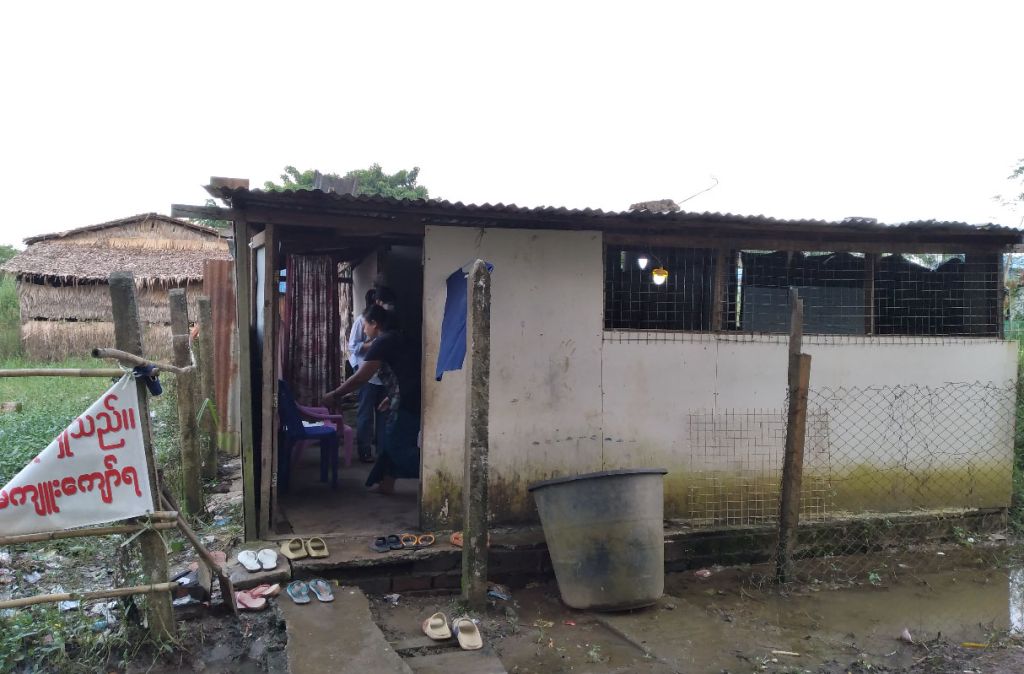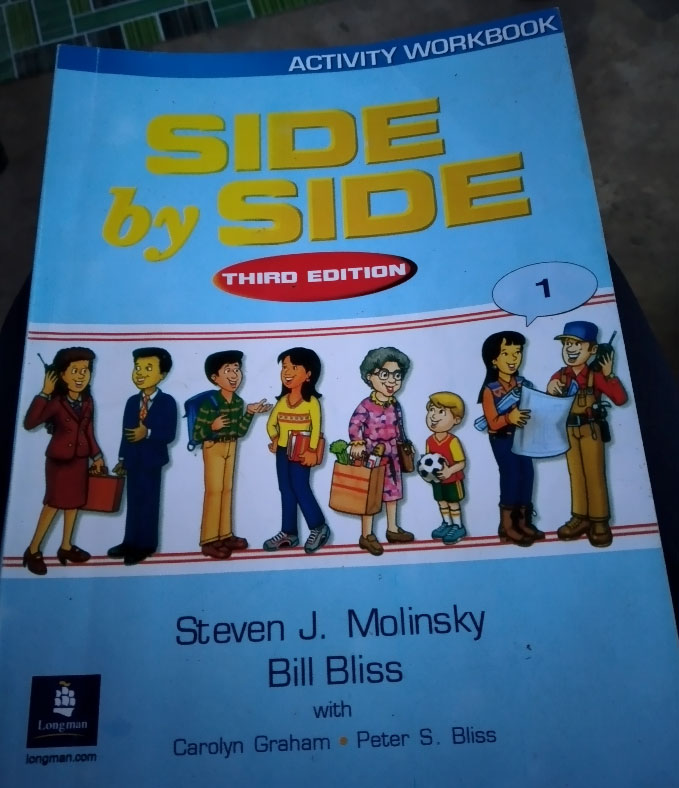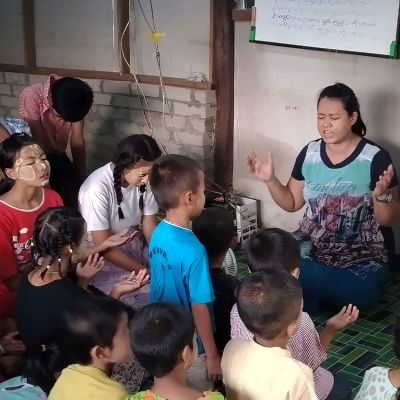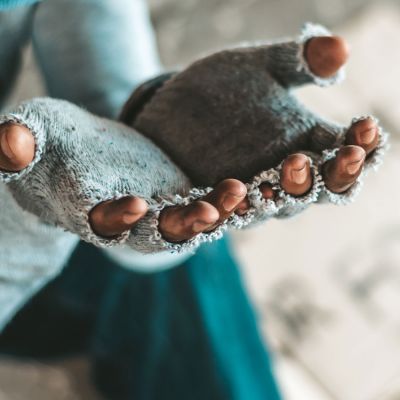Written by Ness Ma (Communications Officer)
In Hong Kong, it is common to see students carrying school bags and playing with their classmates on the streets before and after class. It seems ordinary, but it is not a must that students can go to school safely without worrying about sudden attacks.
In other parts of the world, children may be unable to go to school safely. Since the coup d’état in Myanmar began in February 2021, the country has been engulfed in ongoing conflicts. In January 2023, the UN reported that after two years of coup d’état, over 34,000 civilian buildings, including homes, clinics, schools, and places of worship, have been destroyed in Myanmar. The country has 1.2 million internally displaced persons, nearly half of the population living below the poverty line.
In such a situation, children’s needs are most easily overlooked. In addition to shelter and food, children need learning and peers. CEDAR and its partner in Myanmar, Full Moon Family Foundation (FMFF), saw the needs of children. They launched the ‘Children’s Learning Space in Myanmar’ project in January 2023, aiming to provide a safe learning place for children despite the volatile situation.
Why Setting Up the Learning Space?
When children in Myanmar go to school, they encounter dangers beyond our imagination. On 16 September 2022, the military claimed that there were members of opposition groups hiding in a school and attacked it with armed helicopters. The incident killed 13 people and injured 30 students; some lost limbs. If you were a parent, would you feel safe letting your children attend school?
Our partner shared that the situation in Myanmar is increasingly tense. The military arrests people at all times and all places, and residents might encounter powerful bombs at any time. Even locals do not know where it is safe. Therefore, we set up Learning Space near refugee camps, impoverished areas, and orphanages to reduce children’s risk of travelling long distances to school.

Besides attacks, Burmese children are targeted by human traffickers. As mentioned, many people are displaced within the country due to ongoing conflicts. Children may then not be locally registered and cannot attend a local school. If parents cannot look after their children, or if children are orphaned, they are at risk of being drawn to the streets. They may also end up selling flowers or begging on the streets as instructed by parents due to poverty, indirectly increasing their risk of being trafficked. Even though some children want to work to support their families, they may be unable to understand the contract terms and be deceived into signing contracts and forced into labour. Also, scammers may not have specified work details and locations in the contract and may include unreasonable requirements. Therefore, literacy and anti-trafficking knowledge can help children understand contract terms and identify fraudulent elements.
Introduction to Children’s Learning Space
When children come to the Children’s Learning Space, their main subjects are English and Burmese, as both are essential subjects in the Burmese education system. If students perform poorly in these two subjects, it becomes even more difficult for them to return to regular schools.
Classes are scheduled four days a week, each lasting two hours. Two days will cover English and Burmese languages. The other two days will have interest classes, Bible classes, character education, and teaching children how to protect themselves. The class size varies from a minimum of 10 to a maximum of 40, depending on the Learning Space. Students must register in advance to join the English and Burmese language classes. They have to attend classes regularly to cultivate a good attendance habits. Interest classes are open to all students to explore and develop their interests. The Learning Space is not to replace formal education but combines tutorial and interest classes. Moreover, while children are from impoverished families, this programme is free of charge and provides free stationery and books.

Regarding teachers, the 10 current teachers are not locally certified. Therefore, our partner provides short-term onboarding training for each teacher, such as classroom management and monthly on-the-job training and supervision. Our partner also organises an online teacher fellowship to encourage them to learn from each other and pray together.
We are grateful that children like JF (pseudonym) well receive Learning Space. He is currently living in a refugee camp with his family. His parents were farmers before fleeing the war, and they had no means to provide education for their children, so JF had never been to school. During the pandemic and coup d’état, what he felt the most upset about the displacement was his loss of friends. He has made new friends at the Learning Space, and they study together. Despite never receiving formal education from a government school, he has learned to read and write in classes at Learning Space. His literacy has improved significantly.
Difficulties Persist
It is indeed heartening that children can learn and grow in a safe place. However, Learning Space has its challenges, such as a workforce shortage and parents’ opposition.
As mentioned above, some classes of Learning Space have up to 40 students. Our partner hopes to have one teacher and one assistant for each class to guide the children better. However, they only have 10 teachers teaching at 7 Learning Spaces currently, so achieving the ideal situation may not be possible. The workforce shortage sometimes prevents classes from being divided into different levels, affecting the teaching quality. The content of interest classes also depends on the teacher’s abilities, usually drawing and singing. Occasionally, some teachers teach practical skills such as car repair, which allows students to gain valuable skills.
Besides, not all parents allow their children to participate. The majority of the population in Myanmar practices Buddhism, with a small number following Islam. They resist Christianity and do not allow their children to attend classes. Even though the classes are free for impoverished families, parents would instead send their children to work as they are also a source of labour. Therefore, teachers of Learning Space often visit families, telling parents how important their children’s education is. It is hoped that the parents will eventually allow their children to attend classes.
Conclusion: It Is Learning, As Well As Bringing Hope
In the past two years, Myanmar experienced a coup d’état and economic setbacks due to the pandemic. Our partner pointed out that children living in such an atmosphere could lose hope. Starting this project, CEDAR and its partner aim not only to provide a safe learning environment for children but also to bring hope to them. Learning Space allows children to study in a safe place and enjoy the fun of learning with friends, but more importantly, it brings them hope. With the company of teachers and peers, let children feel God’s love for them and regain hope.
CEDAR supports this project, bringing hope to children’s lives through education. However, many children in Myanmar are still out of school, and their future is worrying amid ongoing conflict. We ask everyone to pray to the Lord that more people are willing to offer help so that these children can have a safe environment to learn and grow in such a volatile situation.
ARTICLES OF THIS ISSUE
Written by Ness Ma (Communications Officer) In Hong Kong, it is common to see students carrying school bags and playin…
Written by Ben Cheung They said to me, ‘Those who survived the exile and are back in the province are in great t…
Written by Clara Chiu (Head of Partnership Development) The COVID-19 pandemic rapidly spread worldwide in 2020, prompt…
Written by Tony Chan (Partnership Development Consultant) ‘Sense of Ritual’ has become a popular term in r…






